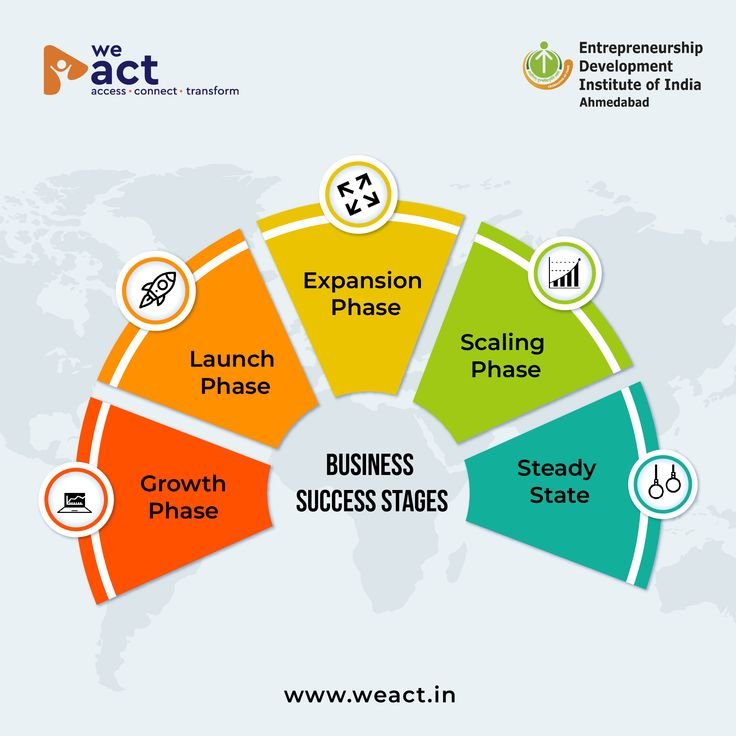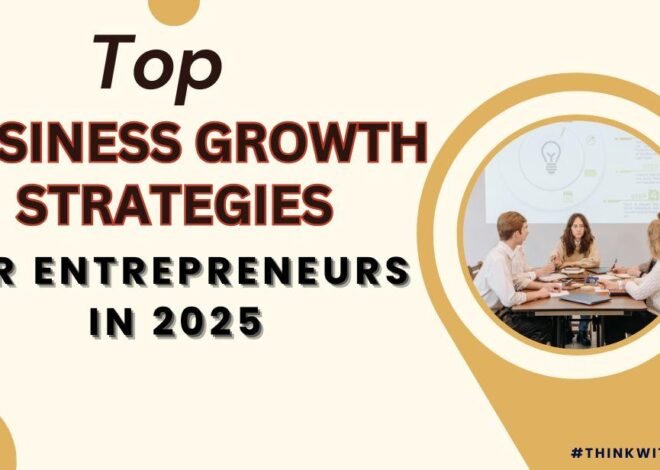
AddWeez Entrepreneurship Guide: Proven Strategies for Startup Success in 2025
Starting a business in 2025 presents unique opportunities and challenges, influenced by rapid advancements in technology, shifting consumer behaviors, and a constantly evolving global economy. This guide is designed to provide entrepreneurs with actionable strategies to build, launch, and scale their startups effectively, ensuring long-term success.
The Entrepreneurial Landscape in 2025
The modern startup ecosystem has been shaped by significant trends, including the rise of AI-driven innovation, the expansion of remote work, and increased access to funding alternatives. Entrepreneurs must leverage these developments to remain competitive. Key highlights of the 2025 landscape include:
- AI Integration: Artificial intelligence is no longer optional; it’s a fundamental tool for streamlining operations and improving customer experiences.
- Remote-First Workforce: Flexible work setups have become a norm, reducing overhead costs while expanding access to top talent globally.
- Consumer-Focused Sustainability: Customers increasingly prefer eco-conscious brands, pushing startups to adopt sustainable practices throughout their operations.
Understanding these shifts is critical for any entrepreneur aiming to thrive in 2025.
1. Identify a Problem and Validate Your Idea
The foundation of any successful startup is a clear problem-solving approach. Identify gaps in the market by:
- Listening to Customers: Leverage platforms like social media, forums, and surveys to understand consumer pain points.
- Exploring Emerging Niches: Recent trends, such as green technology and wellness tech, present opportunities for innovative solutions.
- Testing Your Idea: Use minimal viable products (MVPs) or pilot programs to gauge demand before committing significant resources.
For example, AddWeez, a notable startup in the EdTech space, identified a need for accessible entrepreneurship training and validated its solution through interactive workshops before launching at scale.
2. Develop a Resilient Business Plan
A comprehensive business plan is essential to securing funding and navigating challenges. Your plan should include:
- Market Analysis: Clearly outline your target audience, competitors, and industry trends.
- Revenue Models: Identify how your startup will make money—whether through subscriptions, partnerships, or direct sales.
- Risk Management: Break down potential risks like market saturation or supply chain disruptions and offer contingency plans.
Business plans are not static documents; revisit and adapt them regularly to align with evolving circumstances.
3. Leverage Technology for Growth
Technology can provide startups with an edge in productivity and customer engagement. Key tools to integrate include:
- AI-Driven Analytics: Platforms like Tableau and Looker process vast amounts of data, enabling refined decision-making.
- Low-Code Development Tools: Solutions such as Bubble allow startups to develop and test applications without heavy investment in coding expertise.
- CRM Systems: Tools like HubSpot and Salesforce streamline customer relationship management, boosting retention.
Given the advancements in machine learning, startups that employ predictive analytics can anticipate customer needs, positioning themselves ahead of the competition.
4. Secure Funding and Manage Finances Wisely
The funding landscape has transformed, offering more opportunities beyond traditional venture capital. Key avenues to explore include:
- Crowdfunding Platforms: Websites like Kickstarter and Indiegogo provide exposure and upfront capital for innovative ideas.
- Angel Investing Communities: Dedicated networks such as AngelList connect startups with willing investors in diverse industries.
- Government Grants: Many countries in 2025 offer incentives for tech-driven or sustainable businesses.
Once funding is acquired, prioritize financial health through meticulous budgeting, cash flow management, and regular audits. Tools like QuickBooks offer invaluable assistance in financial tracking.
5. Prioritize Customer Experience (CX)
Customer experience is a crucial differentiator in competitive markets. Strategies to elevate CX include:
- Personalization: Utilize AI algorithms to curate tailored suggestions, emails, or product recommendations based on user behavior.
- Omnichannel Support: Ensure consistent, high-quality communication across multiple channels like chatbots, social media, and in-person interactions.
- Feedback Loops: Actively collect feedback through surveys and act on it to reinforce customer loyalty.
Case in point, startups that invest heavily in customer retention strategies often achieve higher profitability compared to those solely focused on acquisition.
6. Build a Scalable and Adaptive Team
Your team plays a key role in your company’s success. Attract and retain top talent by fostering a strong company culture and scaling wisely:
- Hire for Agility: Look for versatile candidates who can adapt to diverse roles as your business grows.
- Implement Upskilling Programs: Regularly train employees to stay current with industry changes, particularly in technology and customer relations.
- Build Remote-First Policies: Establish a framework for remote work, allowing access to a global pool of talent.
Scaling your workforce effectively ensures you can meet growing demands without sacrificing quality or cohesion.
7. Craft a Robust Marketing Strategy
A solid marketing strategy will elevate your startup’s visibility. Techniques to prioritize in 2025 include:
- Content Marketing: Publish valuable blogs, videos, and articles addressing your audience’s pain points. For instance, AddWeez frequently posts entrepreneurship guides to educate and attract budding founders.
- Social Media Engagement: Use platforms like TikTok and Instagram to connect with your target demographic in creative ways.
- Performance Metrics: Monitor campaign effectiveness through tools like Google Analytics to optimize investments in real time.
Startups demonstrating authenticity in their branding and marketing efforts often achieve stronger connections with their audience.
8. Focus on Sustainable Practices
Sustainability is no longer optional. Integrating eco-conscious strategies will not only reduce environmental footprints but also attract values-driven customers. Key focus areas include:
- Green Supply Chains: Collaborate with suppliers committed to sustainable practices.
- Eco-Friendly Products: Utilize recyclable materials or invest in circular production models.
- Carbon Offset Programs: Partner with organizations facilitating carbon-neutral solutions.
Startups committed to sustainability often see increased support from both investors and consumers alike.
9. Adopt Agile and Iterative Problem-Solving
Staying agile is crucial for adapting to unforeseen market shifts. Employ methodologies like:
- Scrum Principles: Organize projects into short sprints for quick and continuous improvements.
- Iterative Product Development: Test, revise, and refine your offerings based on real-world feedback.
- Data-Based Adjustments: Use real-time analytics to pivot strategies when necessary.
These approaches enable startups to remain resilient and thrive amid uncertainty.
Concluding Thoughts
Success as an entrepreneur in 2025 demands an innovative mindset, resourcefulness, and a commitment to providing value-driven solutions. By leveraging actionable strategies like leveraging technology, prioritizing customer needs, and emphasizing sustainable growth, startups can establish themselves as market leaders.
Aspiring entrepreneurs should focus on continual learning and networking, staying attuned to emerging trends to unlock new opportunities. With dedication, strategic planning, and the right tools, your startup is well-equipped to achieve scalable success in today’s competitive environment.


